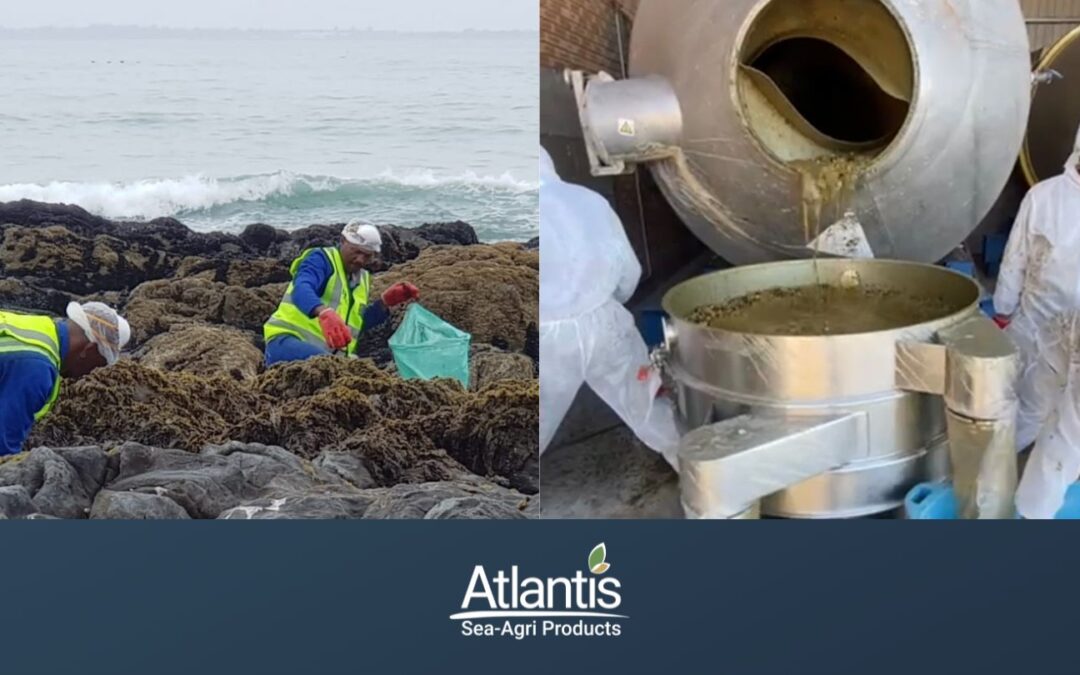In this article we take a look at everything you need to know about kelp-based fertilisers. Kelp-based fertilisers or “bio-stimulants” have been used over the centuries and have become increasingly popular in modern agriculture industries because of their properties of improving the microbial health of soil, root and shoot growth and enhancing the plant’s stress resistance. There are a variety of processes used to produce these products. They result in varied concentrations of plant growth hormones and other essential nutrient levels and most of these products deliver great results when used correctly.
Not All Liquid Kelp Fertilisers Are Created Equal
Liquid kelp fertilisers are typically derived from three seaweed types, namely: brown, red, and green kelp. South Africa’s Ecklonia Maxima, a nutrient-rich brown kelp species, is widely harvested and used for its natural growth promoting hormones and balanced nutrient profile. Harvesting and processing methods have a significant impact on the end-product’s nutrient properties, its concentration, and ultimately, its benefits to crops.
Three of the Main Processing Methods
Liquid kelp fertilisers / bio-stimulants are most commonly produced using three processing methods: Cold-Press or Physical Extraction, Chemical Hydrolysis, and Natural Fermentation Process.
The natural fermentation process is an ancient method that uses the plants natural enzymes to break down the kelp under controlled conditions, releasing high concentrations of hormones and valuable nutrients into the liquid. Atlantis Sea-Agri Products makes use of this natural fermentation process to produce two nutrient-dense liquids from Ecklonia Maxima (Brown Seaweed) and Porphyra Capensis (Red Seaweed).
Our process yields two nutrient-dense, high-quality, balanced liquid kelp or seaweed fertiliser products, rich in plant growth hormones, alginates, fucoidan, polyphenols and other essential macro- and micronutrients that provides optimal support for plant health and growth.

Concentration vs Price: Finding the Right Balance
While all liquid seaweed products offer distinctive benefits, the key to maximising value probably lies in finding the right balance between liquid concentration, properties and the price paid for the product. Concentrated liquid kelp seaweed, like the two products produced at our Atlantis facility, may deliver more “value” per litre, making them a great, cost-effective option in any farming environment.

Sustainable Production and Recycling Practices
At Atlantis Sea-Agri Products we prioritise sustainability in every step of our production process. Following the production process, the fermented product is screened, filtered to 50 micron, stabilised and stored in under-roof bulk tanks to adequately preserve the final product and protect it from heat and the sun’s UV rays until it is dispatched in 20 litre cans of 1000 liter flow bins. Thereby, ensuring quality and convenience for our local and international agricultural users. Any remaining kelp solids are recycled and dried in our indirect steam driers to create a dry kelp fertiliser product, eliminating any solid waste and supporting environmentally friendly, modern farming practices.
Make an Informed Choice
Choosing a liquid kelp or seaweed fertiliser, that has high concentration, is filled with essential micronutrients and plant growth hormones, and which is also competitively priced, like the naturally fermented liquid seaweed products from Atlantis Sea-Agri Products, means similar or better agriculture outputs can be achieved at reduced operational cost. Please always consult with a trusted technical expert to ensure you achieve the best results from your selected liquid kelp / seaweed products. To learn more about Atlantis Sea-Agri’s liquid kelp / seaweed and to choose the right one for your needs give the Atlantis Sea-Agri team a call. Visit our website to find out more about all our kelp fertilisers on offer as well as all our complimentary products.



